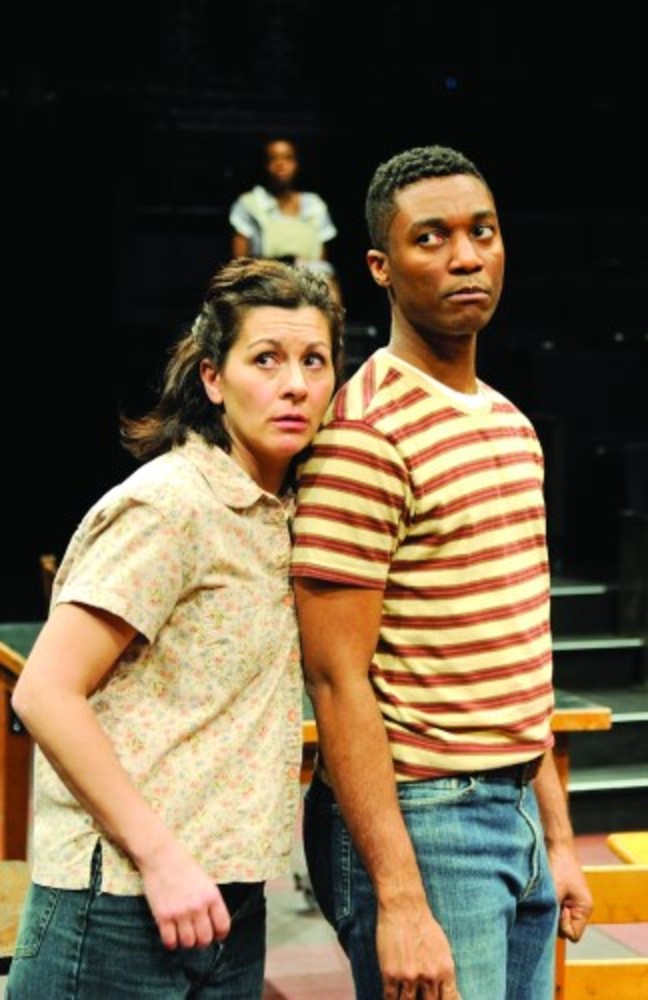‘To Kill a Mockingbird’ and other hateful crimes
 Angela Brazil as Scout, Jude Sandy as Jem and Mia Ellis as Calpurnia (background) /MARK TUREK
Angela Brazil as Scout, Jude Sandy as Jem and Mia Ellis as Calpurnia (background) /MARK TUREK
One of the most enduring stories of all times is “To Kill a Mockingbird.” The novel (published in 1960) which was subsequently made into a movie two years later, is a loose autobiography of Harper Lee’s interpretations, observations and impressions of growing up in the racially-divided south. The story is told by Scout, a young white girl, in Maycomb County, Alabama, during the Depression. When her father, Atticus Finch, is appointed to defend a black man falsely accused of raping a white woman, Scout’s passage from “innocence to experience” begins.
“To Kill a Mockingbird” addresses some of the same issues our society grapples with today – injustice, hate, regionalism, social standing, gender roles, equality, race, cultural differences, legal issues and loss of innocence. The current production at Trinity Repertory Theater, running through April 3, seeks to explore both Scout’s journey and our own personal stories surrounding these themes.
“On the first day of rehearsal for ‘To Kill a Mockingbird,’ I asked each actor to recount a moment in their lives when they moved from innocence to experience,” said director Brian McEleney.
This poignant and emotional stage production of “Mockingbird” is made even more compelling because the actors intermittingly share their personal stories of intolerance, violence, misunderstanding and naïveté. Throughout the performance, each player breaks character to intimately explain how his/her story has intersected with his/her understanding of the play.
The exceptionally talented cast is distinctive and diverse. The choice to cast an actor of color as Scout’s older brother, Jem, challenges the sensibilities of even a modern audience.
“Our acting company is functioning as storytellers,” said McEleney. “We are asking the audience to look past the usual limits of age and race in the presentation of character, and to join us in a collective ownership of this well-known and much-loved American story.”
This also seems to be the director’s method of reminding the audience that regardless of our civil rights advancements, we may still be affected by our narrow worldview and beliefs. In the end, the audience is keenly aware of his/her own bias, insecurity, experiences and narrative. Who among us has not metaphorically “killed a mockingbird?” Dare I ask the readers to recall a time when they have perpetrated racial or ethnic slurs, practiced ethnocentrism or homophobia, entertained misguided notions about anyone who is different or hurt someone who has done no wrong?
Trinity’s production of “To Kill a Mockingbird” will make you squirm in your seat, get angry and feel pity. It will also beckon you to tell your story. Do not miss this historical, educational, thought-provoking production of an American classic.
KARA MARZIALI is the director of communications for the Jewish Alliance of Greater Rhode Island.







